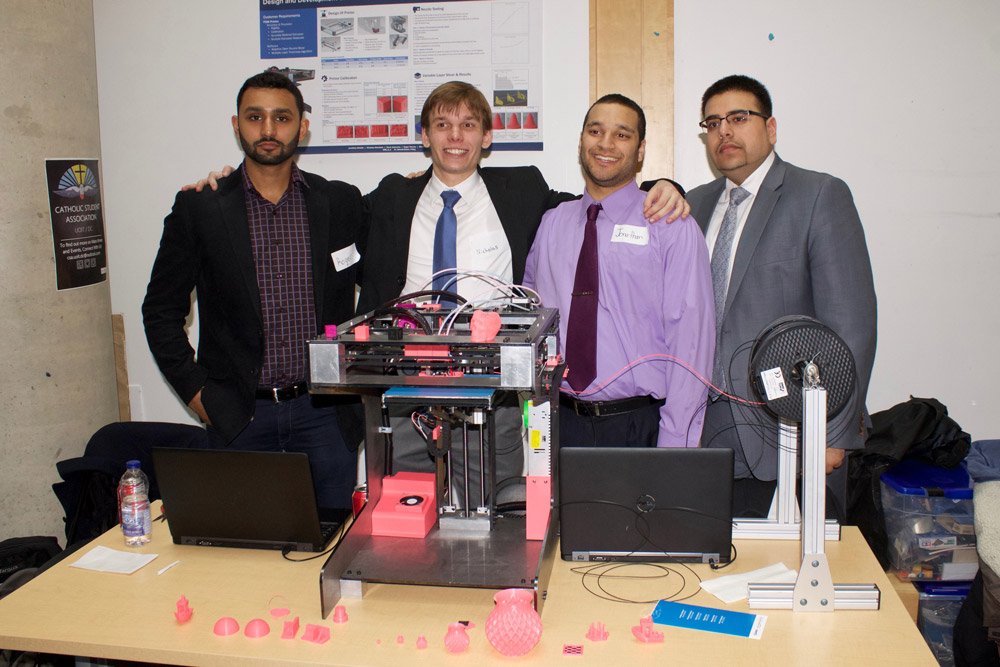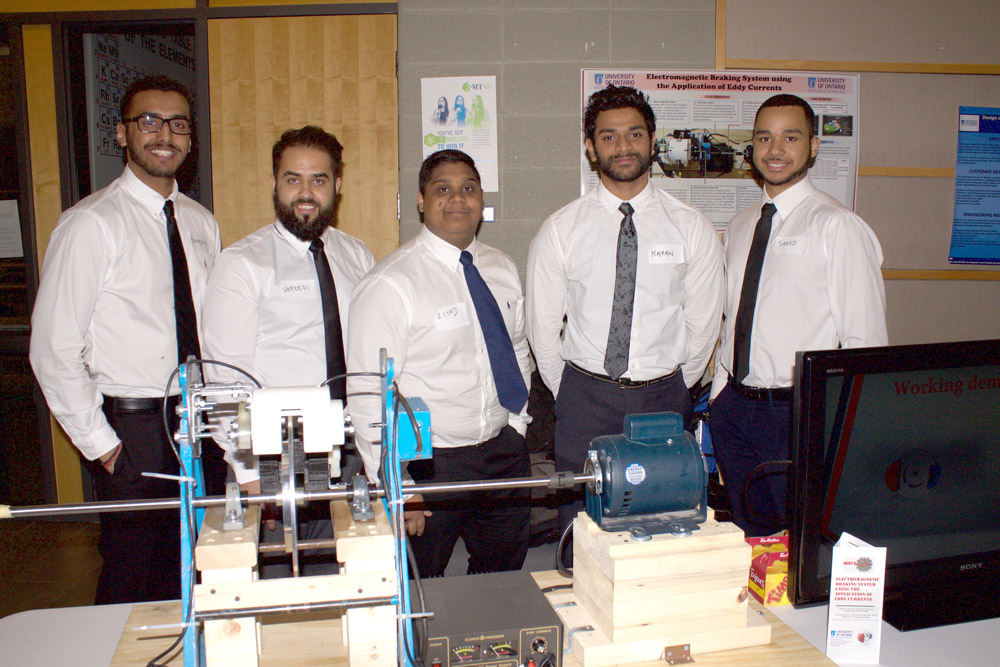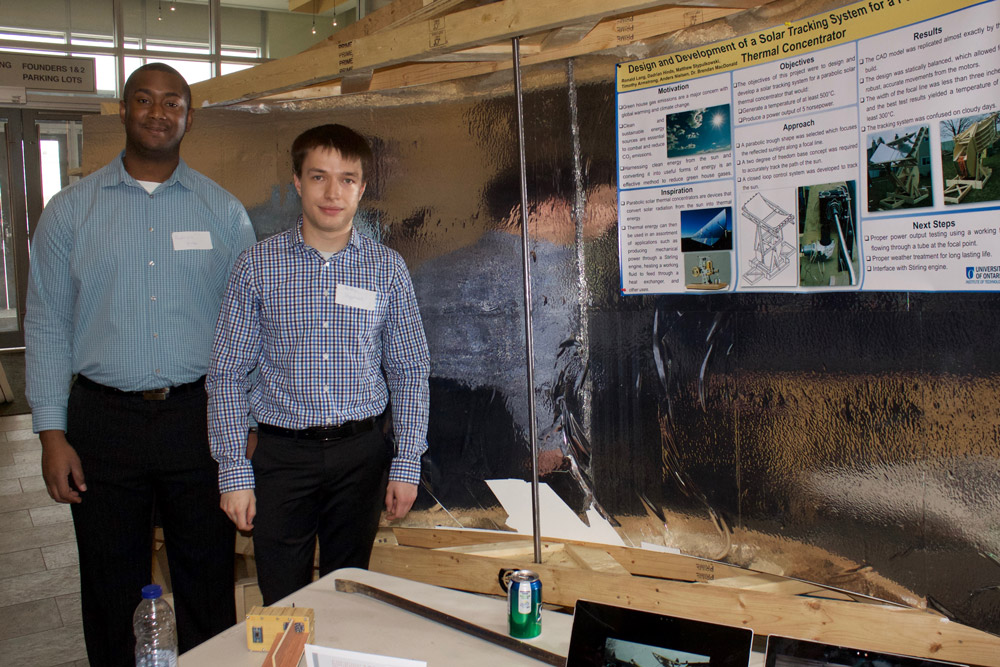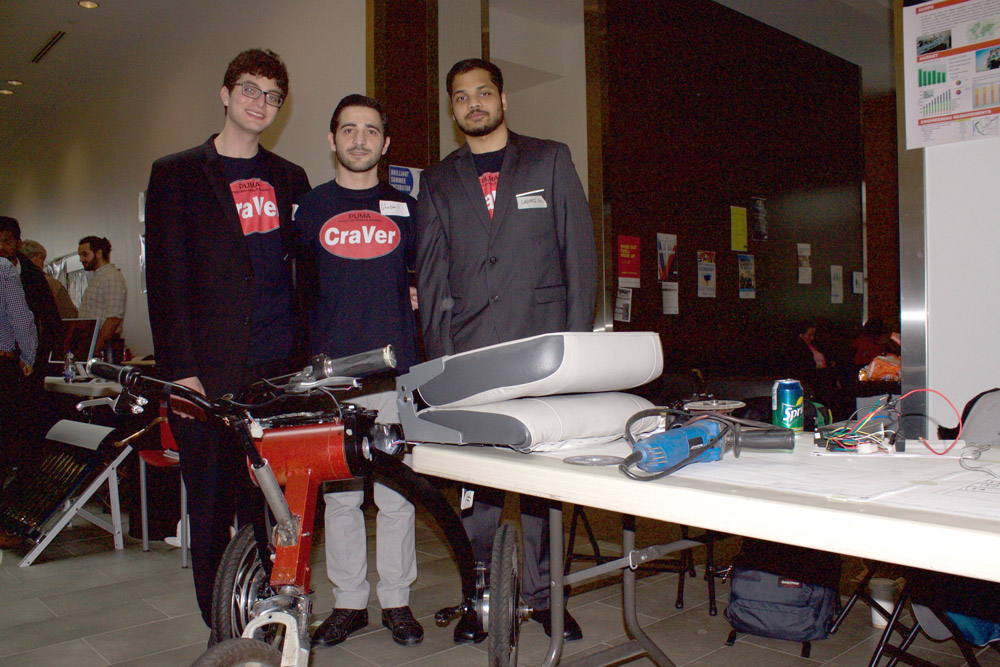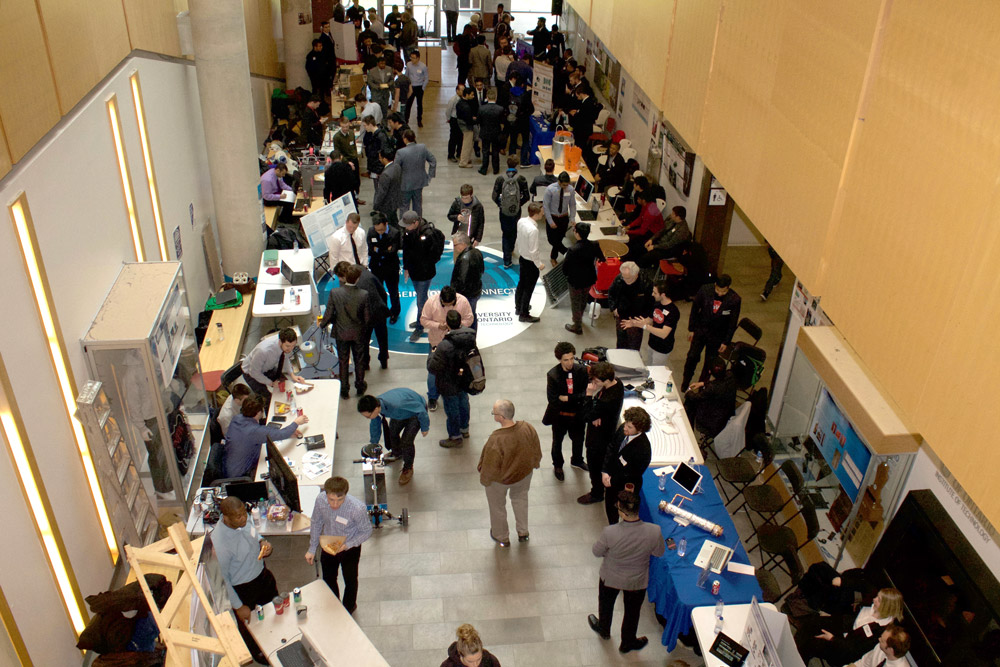Innovative engineering projects highlight 2017 Capstone event
May 12, 2017
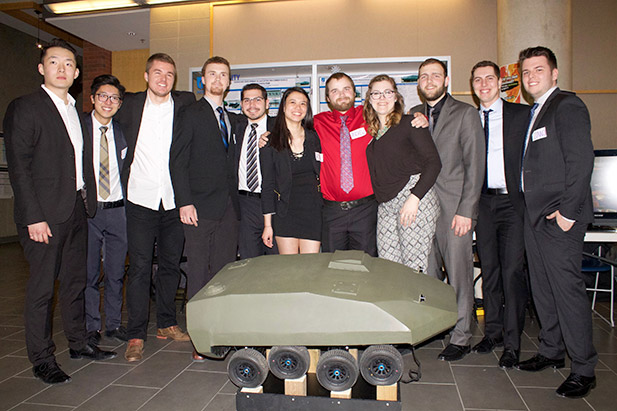
A major component of the learning experience at the University of Ontario Institute of Technology is the opportunity for students to demonstrate their ability to apply knowledge they have gained in their program.
In the university’s Faculty of Engineering and Applied Science (FEAS), fourth-year students work in teams on a ‘Capstone’ project: an eight-month effort to devise innovative solutions to real-world problems. At the end of second semester, students showcase their research and discoveries at the annual FEAS Capstone Exhibition and Competition.
Among this year’s array of FEAS Capstone projects were:
- urban mobility solutions (self-powered, portable devices for urban travel)
- solar thermal concentrators (100 per cent carbon-free heat source)
- multiple-layer thickness 3D-printing mechanisms (precise, intricate 3D printing)
- electric 8x8 combat vehicles (fully-functional smaller model of a military vehicle)
Prizes were handed out for the best projects in the FEAS departments of Automotive, Mechanical and Manufacturing Engineering (AMME), and Electrical, Computer and Software Engineering (ECSE).
“The success and the impressive outcome of Capstone projects are mainly due to the hard work of our students, and the experience they have gained over the years at the university, and through our industrial partnerships,” says Moustafa El-Gindy, PhD, Associate Professor and supervisor of the first-place AMME Capstone team.
“This year’s ECSE Capstone projects provided a great learning experience for the graduating class,” says Vijay Sood, PhD, Associate Professor and ECSE Design Chair. “The feedback from industrial sponsors such as GM Canada and Gerdau (a Brazilian steel company) was excellent. The judges commented very positively on the quality of the projects and the calibre of the students.”
AMME prizes:
First: Design and development of skid-steered electric 8x8 combat vehicle
Electronic Control System team
-
- Jay Averill (Mechanical Engineering)
- Joseph Iacobellis (Mechanical Engineering)
- Alex Levenko (Automotive Engineering)
- Ryla Mutiger (Automotive Engineering)
- Kelvin Ng (Automotive Engineering)
- Aaron Tan (Automotive Engineering)
Supervisor: Moustafa El-Gindy, PhD
Powertrain Manufacturing team
-
- Andrew Bronee (Mechanical Engineering)
- Colin Fevery (Mechanical Engineering)
- Tyler Girdler (Mechanical Engineering)
- Natalie Maheu (Mechanical Engineering)
- Connor Prole (Mechanical Engineering)
Supervisor: Moustafa El-Gindy, PhD
Second: Design and development of a multi-sensory dexterous robotic hand with a wearable haptic remote controller
- Ryan Ashley (Mechanical Engineering, Mechatronics specialization)
- Indy Finney (Mechanical Engineering, Mechatronics specialization)
- Tyler Kingston (Mechanical Engineering, Mechatronics specialization )
- Mark Mihailov (Mechanical Engineering)
Supervisors: Haoxiang Lang, PhD and Yuelei Yang, PhD
Third: Design and development of an autonomous robotic object grasping application with human-robot interaction
- Aaqib Azeem (Mechanical Engineering)
- Harpreet Barpugga (Mechanical Engineering)
- Amit Prajapati (Mechanical Engineering)
- Gurmeet Sidhu (Automotive Engineering)
- Andrew Singh (Mechanical Engineering)
- Duy Tran (Mechanical Engineering)
Supervisors: Haoxiang Lang, PhD
ECSE prizes:
First: Machine learning for safety of autonomous real-time systems through image processing
- Omar Almootassem (Software Engineering)
- Michael Lescisin (Electrical Engineering)
- Dominick Mancini (Software Engineering)
- Mohamad Vedut (Software Engineering)
Supervisor: Khalid Hafeez, PhD
Second: Greenhouse monitoring solar harvesting modular wireless sensor network
- Jordan Henry (Electrical Engineering)
- Rudy Lang (Electrical Engineering)
- Dhimiter Qendri (Electrical Engineering)
Supervisor: Mohamed Youssef, PhD
Third: DINE (booking system app for restaurants)
- Faizan Contractor (Software Engineering)
- Syed Hamza Husain (Software Engineering)
- Denesh Parthipan (Software Engineering)
- Talha Zia (Software Engineering)
Supervisor: Khalid Hafeez, PhD
5 > 1